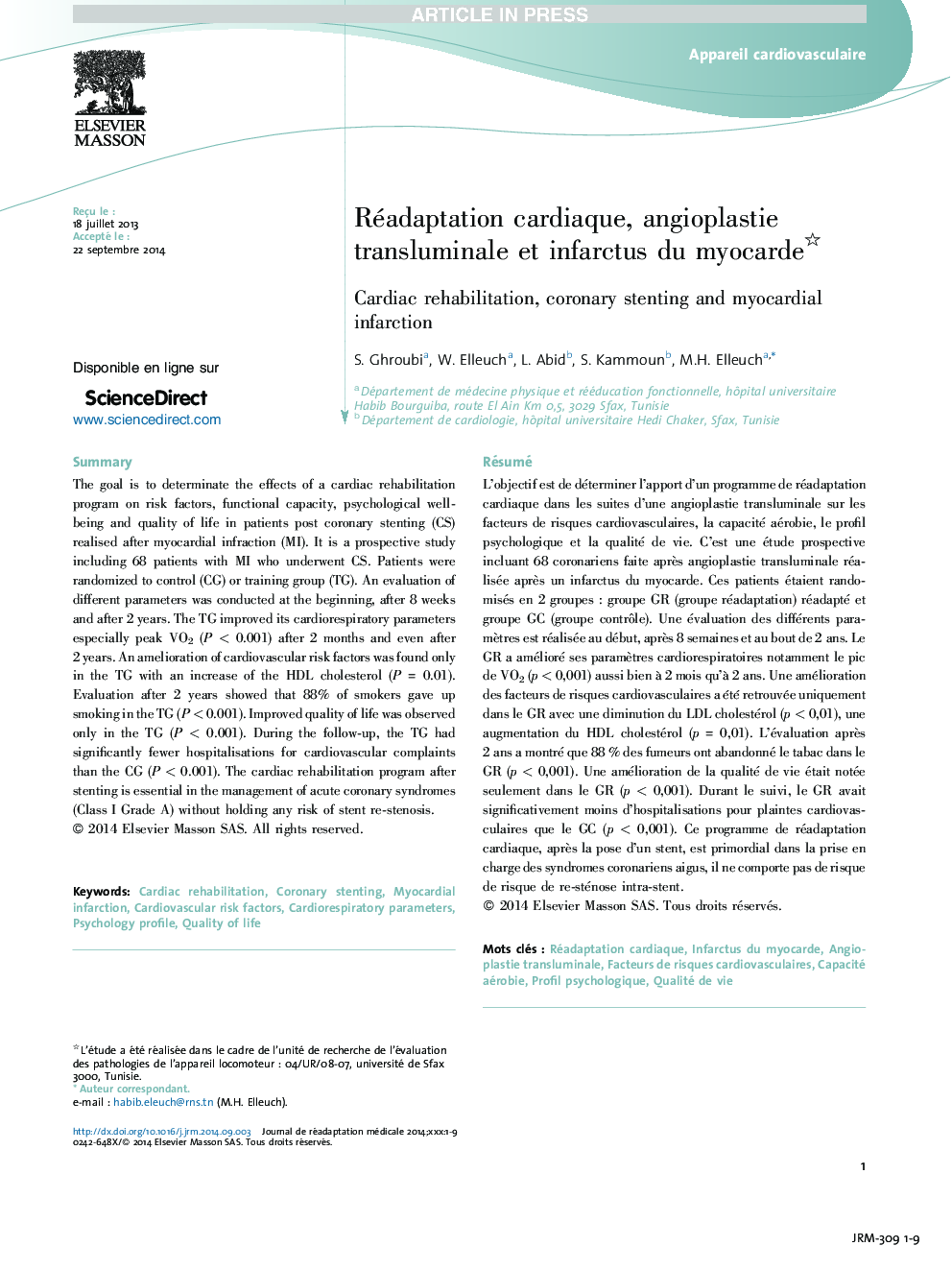| Article ID | Journal | Published Year | Pages | File Type |
|---|---|---|---|---|
| 2705843 | Journal de Réadaptation Médicale : Pratique et Formation en Médecine Physique et de Réadaptation | 2014 | 9 Pages |
Abstract
The goal is to determinate the effects of a cardiac rehabilitation program on risk factors, functional capacity, psychological well-being and quality of life in patients post coronary stenting (CS) realised after myocardial infraction (MI). It is a prospective study including 68 patients with MI who underwent CS. Patients were randomized to control (CG) or training group (TG). An evaluation of different parameters was conducted at the beginning, after 8Â weeks and after 2Â years. The TG improved its cardiorespiratory parameters especially peak VO2 (PÂ <Â 0.001) after 2Â months and even after 2Â years. An amelioration of cardiovascular risk factors was found only in the TG with an increase of the HDL cholesterol (PÂ =Â 0.01). Evaluation after 2Â years showed that 88% of smokers gave up smoking in the TG (PÂ <Â 0.001). Improved quality of life was observed only in the TG (PÂ <Â 0.001). During the follow-up, the TG had significantly fewer hospitalisations for cardiovascular complaints than the CG (PÂ <Â 0.001). The cardiac rehabilitation program after stenting is essential in the management of acute coronary syndromes (Class I Grade A) without holding any risk of stent re-stenosis.
Keywords
Related Topics
Health Sciences
Medicine and Dentistry
Orthopedics, Sports Medicine and Rehabilitation
Authors
S. Ghroubi, W. Elleuch, L. Abid, S. Kammoun, M.H. Elleuch,
